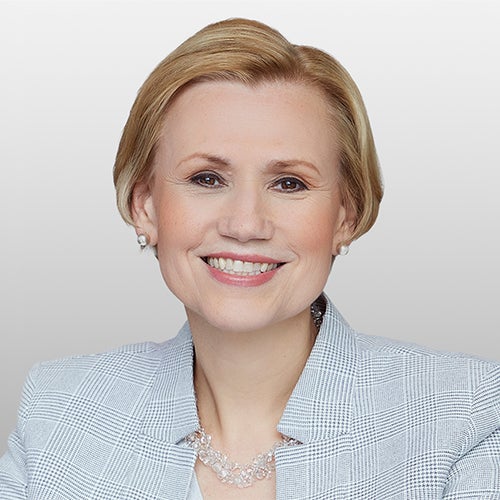Markets contend with a week of surprises

Key takeaways
The Bank of Canada turns hawkish
Is a US capital gains tax hike in store?
Earnings season starts strong
The Bank of Canada took a hawkish turn, the Biden administration floated a tax hike proposal, and earnings season could break a record for positive surprises. Here’s a round-up of key events from the past week, and what we’re watching on the horizon.
The Bank of Canada to cut bond purchases
The Bank of Canada (BOC) is starting to take away the punch bowl even though the party is still relatively young. Last week, the central bank noted that the Canadian economy has already made a significant recovery — and that there has been an accompanying rise in inflation. In response, the Bank of Canada announced that it would begin an early withdrawal of monetary policy accommodation, cutting bond purchases by 25%.1
What does this mean? Some worry that this is the removal of the finger in the dam that will start a wave of tightenings by central banks in the back half of 2021. I disagree. While other central banks will need to begin tightening at some point, I don’t expect any major developed-world central banks to follow suit this year. The Bank of Canada has traditionally been more conservative than other central banks, so it makes sense it would be eager to begin reducing accommodation. In fact, I think it’s close to a miracle that it has been so accommodative during the pandemic. Of note, the Bank of Canada’s current bond buying program is purchasing 40% of the government bonds currently in circulation2 — I would imagine the central bank is looking for reasons to extricate itself from playing such an outsized role in the bond market.
So in my opinion, this appears to be the beginnings of monetary policy divergence, which is likely to continue in the coming year as different central banks around the world look to chart their own course. After all, Federal Reserve Chair Jay Powell continues to pledge that the Fed will remain accommodative far longer. And the European Central Bank’s (ECB) Christine Lagarde was very clear last week that the eurozone economy is on two “crutches” — one of which is monetary policy — and needs that continued support. She was emphatic that it is “premature” to discuss any future reduction in monetary stimulus, especially since she sees near-term downside risks.
Is a US capital gains tax hike in store?
The Biden administration anonymously floated a proposal for higher taxes — a large increase in the capital gains taxes for those earning more than $1 million in total income. Not surprisingly, this caused a brief sell-off for US stocks last week.
In my opinion, any proposal for a substantial increase in taxes would be dead on arrival, given the composition of the US Senate. Yes, the Biden administration could get some increase in certain taxes, but I don’t think any would come close to what has been proposed. Even so, we may see further volatility in stocks as the conversation about higher taxes continues. However, I continue to remain optimistic that we will only see modest increases in taxes in the next year.
Bitcoin stages a rally
Following my blog last week, bitcoin experienced several challenging days. A few different forces conspired against cryptocurrencies, including fear of taxes for cryptos, fear of regulation of cryptos, and general uneasiness after bitcoin hit a new high in the previous week.
But over the weekend, bitcoin staged a significant recovery, helped by a tweet from Elon Musk. I expect more of the same in terms of volatility. After all, if tweets can have such a big impact on price movements, I think we need to expect substantial volatility.
COVID-19 results continue to diverge dramatically
Examining the COVID-19 case count around the world, it’s clear that the highs are getting higher and the lows are getting lower. More people were diagnosed with COVID-19 last week than any other since the pandemic began.3 The World Health Organization has warned that new infections are increasing in many parts of the world, even as the US and Europe are seeing a decline in new daily cases. Sadly, India recorded more than 350,000 new COVID-19 infections on Sunday — the largest single day record for infections, and the fifth day in a row that India has broken the world record for most new infections.4 The good news is that the US has pledged to do more to help India with its vaccine rollout — a decision that is not just good for India but is good for the US and the world.
In terms of the highs getting higher, last week Israel saw only 38 new COVID-19 cases in a day — the lowest daily number in more than a year.5 In addition, last week Israel logged its first day without any COVID-19 deaths. 5 As I have said before, Israel is the gold standard when it comes to vaccinations. What it is experiencing now could be the future of any country that can achieve the same success in vaccinating its citizens. The US is getting closer to where Israel is, with more than 40% of the US population having received at least one dose of a COVID-19 vaccine.6
Earnings season in the US is going well so far
Not surprisingly, earnings season this far has been strong. While only 25% of companies in the S&P 500 Index have reported thus far, 77% of them have reported a positive revenue surprise, and 84% of them have reported a positive earnings per share (EPS) surprise.7 If that 84% figure holds up for the entirety of S&P 500 companies, it would tie the record for the highest percentage of S&P 500 companies reporting a positive EPS surprise since 2008 when FactSet began tracking this metric.7
The week ahead
Two of the most important things on investors’ minds this week:
- The FOMC meeting. After the Bank of Canada’s announcement last week, all eyes will be on the Fed to see if Powell’s hands are itching to follow Canada’s lead and start taking away America’s punch bowl. I don’t believe that will be the case. I suspect we will hear more of the same accommodative stance from Powell and his fellow Federal Open Market Committee (FOMC) participants — far more similar to what we heard last week from the ECB’s Lagarde rather than BOC Governor Tiff Macklem.
- Earnings. We will see some important earnings releases this week, including many of the giants of the tech sector, including Tesla, Alphabet, Microsoft, Facebook, Apple and Amazon. I expect a continuation of the positive surprise theme for most stocks reporting this week — but outlooks will be even more important, and I expect those to be positive as well.
Footnotes
-
1 Source: Bank of Canada
2 As of April 2021. Source: Bloomberg News, “Bank of Canada Set to Dial Back Bond Buying: Decision-Day Guide,” April 20, 2021
3 Source: WebMD, “WHO: Worldwide COVID Cases Reached New Weekly Record,” April 23, 2021
4 Source: Business Insider, “India recorded more than 350,000 new COVID-19 cases in 24 hours, setting a devastating world record for the 5th day in a row,” April 26, 2021
5 Source: The Times of Israel, April 25, 2021
6 Source: Business Insider, “Despite a few rich countries doing well, global COVID-19 cases are the highest they've ever been,” April 26, 2021
7 Source: FactSet Research Systems, as of April 23, 2021
Investment risks
-
The value of investments and any income will fluctuate (this may partly be the result of exchange rate fluctuations) and investors may not get back the full amount invested.
Important information
-
Data as of 26 April 2021 unless stated otherwise.
This document is marketing material and is not intended as a recommendation to invest in any particular asset class, security or strategy. Regulatory requirements that require impartiality of investment/investment strategy recommendations are therefore not applicable nor are any prohibitions to trade before publication. The information provided is for illustrative purposes only, it should not be relied upon as recommendations to buy or sell securities.
Where individuals or the business have expressed opinions, they are based on current market conditions, they may differ from those of other investment professionals, they are subject to change without notice and are not to be construed as investment advice.
Earnings per share (EPS) refers to a company’s total earnings divided by the number of outstanding shares.


